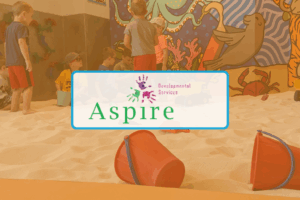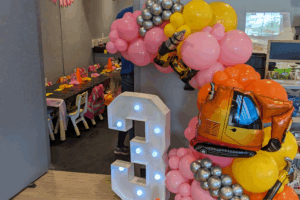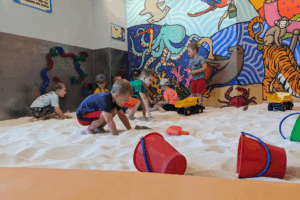How Indoor Sand Play Supports Emotional Development in Kids: Indoor sand play isn’t just about fun—it’s a powerful tool for emotional development in children. From stress relief to social bonding, playing with sand in a controlled indoor environment provides a unique sensory experience that fosters emotional well-being. Here’s how indoor sand play helps kids grow emotionally and why it’s an essential part of their development.
1. Encourages Self-Expression
Children often struggle to verbalize their emotions, but sand play provides a creative outlet for expression. Whether they’re gathering the sand, or simply running their fingers through the sand, kids can use this medium to convey their feelings in a safe, pressure-free environment.
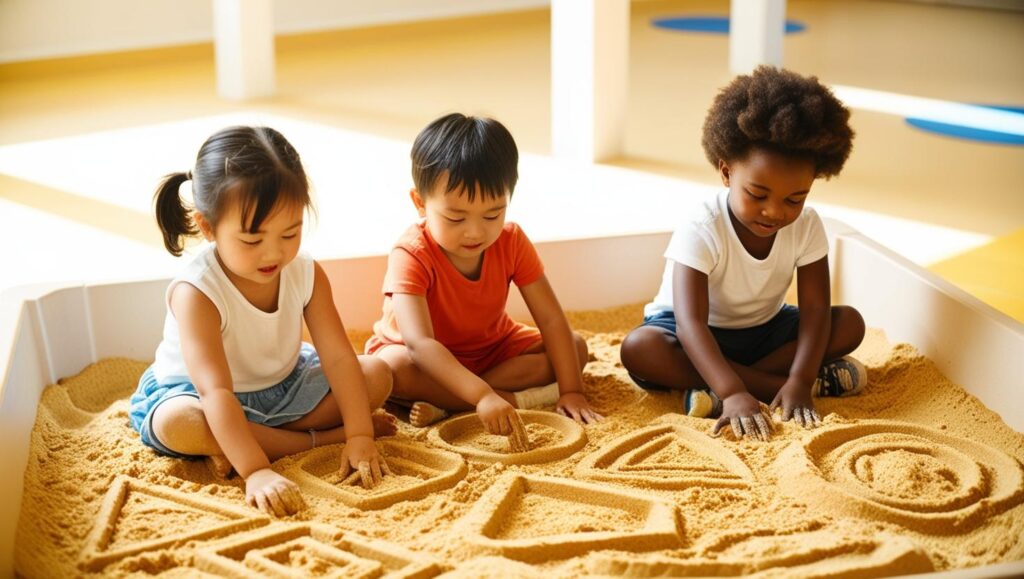
2. Reduces Stress and Anxiety
The soothing nature of sand play has a calming effect on children. The repetitive motion of pouring, scooping, and shaping sand helps regulate emotions, making it an effective tool for stress relief. Many therapists even use sand play as a form of therapy to help children process emotions and manage anxiety.
3. Builds Social and Emotional Skills
Playing in an indoor sandbox encourages cooperation, sharing, and communication. Whether working together to build structures or negotiating turns with different toys, children develop essential social skills. This type of play teaches patience, empathy, and how to navigate social interactions in a fun and engaging way.
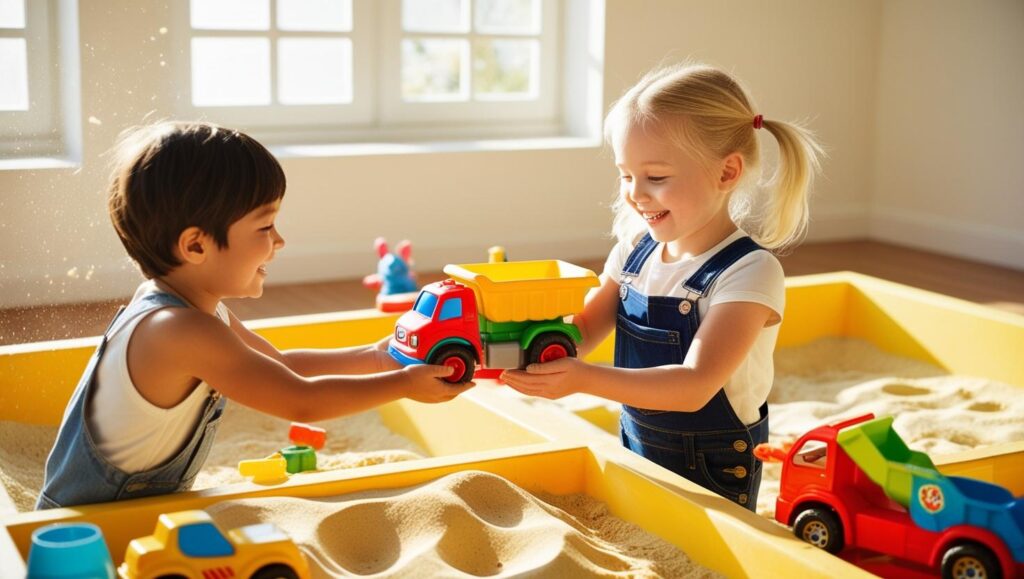
4. Enhances Problem-Solving and Resilience
When kids encounter challenges while building with sand—such as a collapsed tower or a dry texture that won’t hold its shape—they learn problem-solving skills. Overcoming these small frustrations helps build resilience, patience, and confidence in their abilities.
5. Supports Sensory Development and Mindfulness
The tactile experience of sand play engages a child’s senses, providing sensory stimulation that can improve focus and mindfulness. The feel of the sand, the sound it makes when poured, and the visual changes when shaped all contribute to a rich sensory experience that enhances emotional regulation.
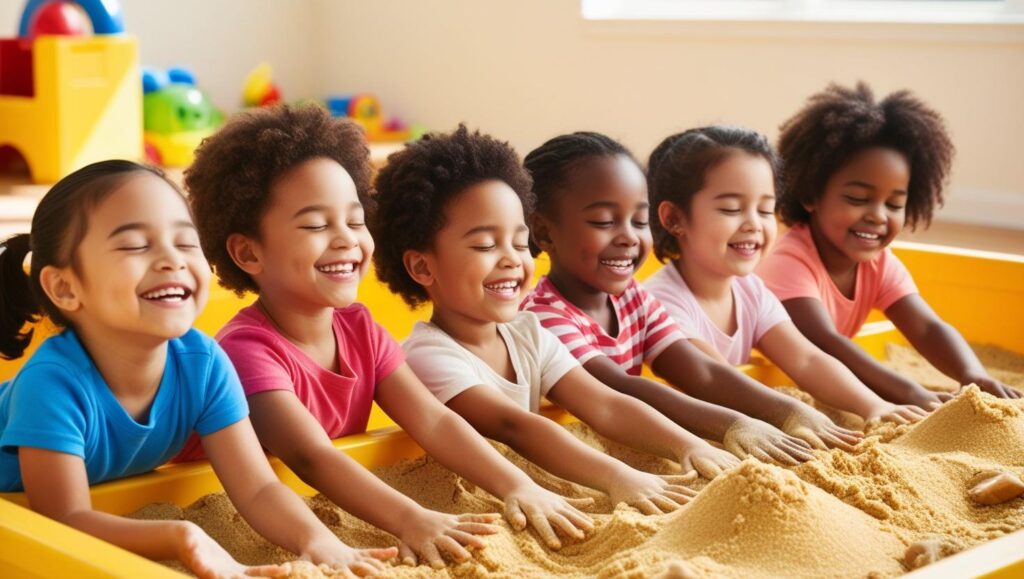
6. Creates a Safe Space for Emotional Growth
Indoor sand play areas provide a structured environment where children feel secure enough to explore their emotions. Without outdoor distractions or weather concerns, kids can immerse themselves in play, benefiting from the therapeutic qualities of sand in a comfortable setting.
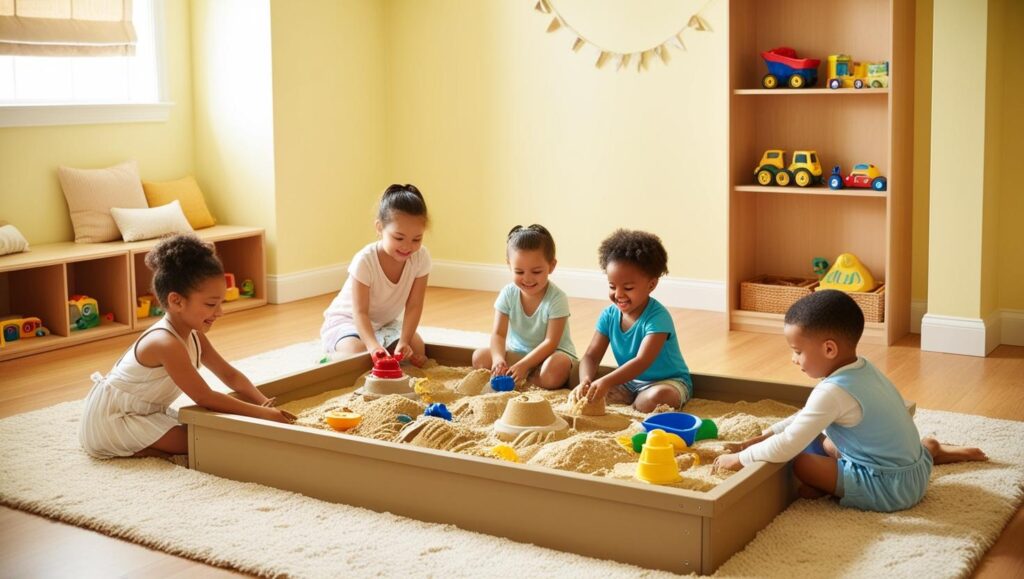
Conclusion
Indoor sand play is more than just a fun activity—it’s a vital component of emotional development for children. By fostering self-expression, reducing stress, and building essential social skills, sand play provides a well-rounded experience that benefits kids in multiple ways. If you’re looking for an enriching activity that supports your child’s emotional well-being, consider bringing them to Sandmagination, where play meets development in the most engaging way possible! Visit Sandmagination.com to learn more about our indoor sand play experience!

